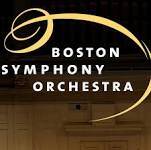Forum Network
Free online lectures: Explore a world of ideas

The Boston Symphony Orchestra gave its inaugural concert in 1881, realizing the dream of its founder, the Civil War veteran/businessman/philanthropist Henry Lee Higginson, who envisioned a great and permanent orchestra in his hometown of Boston. Today the BSO reaches millions of listeners, not only through its concert performances in Boston and at Tanglewood, but also via the internet, radio, television, educational programs, recordings, and tours. It commissions works from today's most important composers; its summer season at Tanglewood is among the world's most important music festivals; it helps develop future audiences through BSO Youth Concerts and educational outreach programs involving the entire Boston community; and, during the Tanglewood season, it operates the Tanglewood Music Center, one of the world's most important training grounds for young professional-caliber musicians. The Boston Symphony Chamber Players, made up of BSO principals, are known worldwide, and the Boston Pops Orchestra sets an international standard for performances of lighter music.